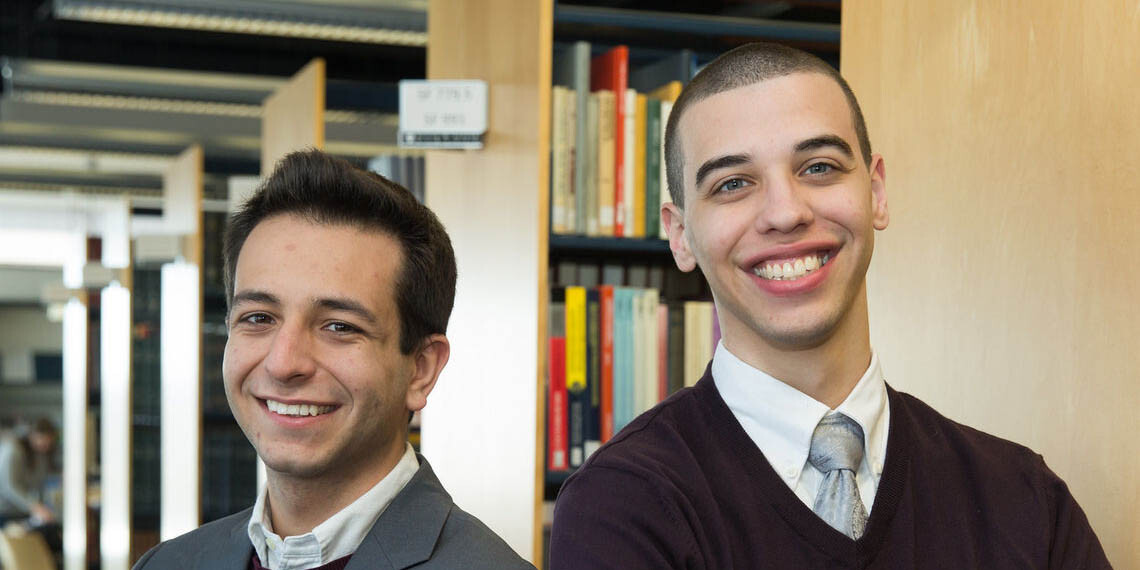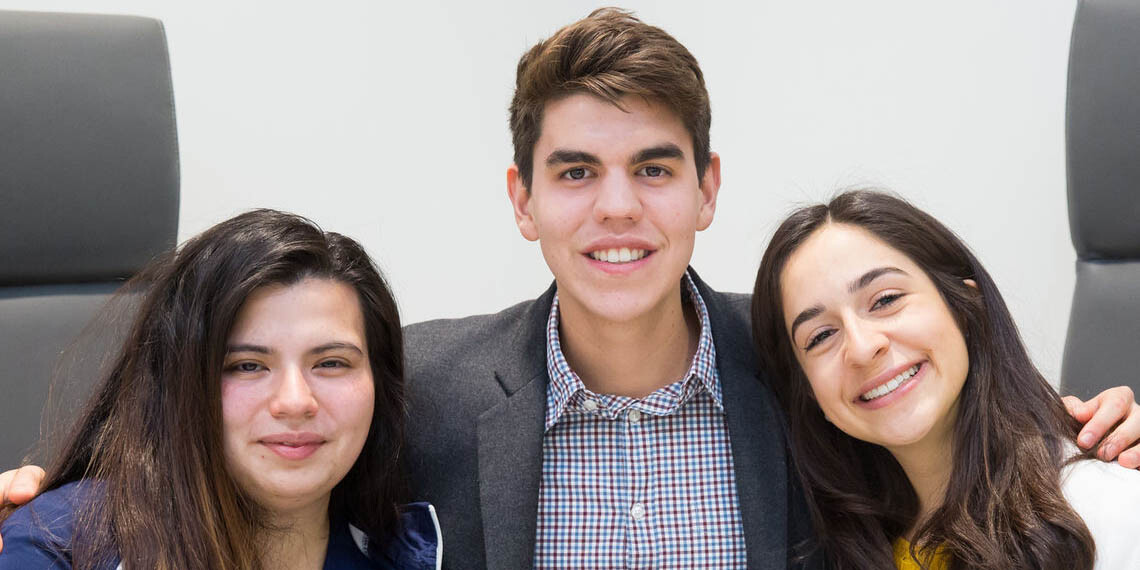In the streets of Senegal, thousands of young boys beg for food and money.
Known as “talibés,” the Arabic word for “pupil,” or “disciple,” children between the ages of 6 and 17 wander the city streets for up to 12 hours each day, barely clothed, inadequately fed, in poor health, and living in harsh conditions. They deliver the money to a “marabout” spiritual teacher to pay for teachings that they never receive. Unregulated schools can be platforms for exploitation and the children are beaten if they fail to reach set quotas as “payment” for their fosterage.
With the support of the President's Engagement Prize, 2017 College of Arts & Sciences graduates Antoinette Zoumanigui from Brooklyn Park, Minn. and Selamawit Bekele of San Jose, Calif., are working to address this issue through Project Y.V.E.T.A.: Youth for Vocational Education and Training in Agriculture.
The culmination of their previous health and education projects in Senegal, Project Y.V.E.T.A. targets adolescents ages 15-18 who are burdened with the responsibility of providing for themselves and their families. But without any job skills or the ability to read and write, integrating into society can be problematic.
“Identifying the absence of support and education systems that cater to children who are in a pivotal point in their lives and the potential downstream effect of empowering teens to become successful in their rural environment and prevent rural-urban migration steered our project’s conception,” Bekele explains.
Project Y.V.E.T.A. will educate the talibés with literacy, math, and vocational skills, along with training in agriculture, agricultural operations, and agri-entrepreneurship. The first of its kind in Senegal, the new Occupationally Directed Education and Training, or O.D.E.T., school will focus on ground peanut and millet farming, as Senegal is the world’s leading exporter of groundnut oil.
The school will enhance its vegetable garden and incorporate poultry farming, giving a new cohort of entrepreneurs the tools to succeed in the agricultural-business sector.
Project Y.V.E.T.A. will contribute toward building economic resilience for a generation representing not only Senegal’s, but Africa’s future.
Antoinette Zoumanigui
“By leveraging the support of our partners, we’ll create access to education that will empower these children and their parents, allowing them to see the potential for entrepreneurial opportunities within their rural homes,” Zoumanigui says.
Project Y.V.E.T.A.’s strategic partners include Diante Bou Bess, an agricultural center at the heart of the Sandiara community that has provided 20 acres of land, classrooms, and office space in Thies; the Senegalese Ministry of Agriculture, which will design the school’s agricultural curriculum and provide certification for the two-year program; and Talibécole, an organization which will develop the school’s more traditional, formal educational curriculum.
“Centered on skill development and accessible quality education will help drive Senegal’s long-term economic stability while providing the country’s at-risk adolescents with the tools they need to become socially integrated, prosperous, and productive members of their society,” Bekele says.
For Project Y.V.E.T.A., the President's Engagement Prize will cover the costs of setting up the school’s classrooms and administrative spaces, including furniture and materials, as well as the farming equipment needed to propel the program through two harvest seasons.
“Our farm operations will generate income to sustain our programs and provide food for the children we educate,” Zoumanigui says, “and their families.”
Cheikh Babou, an associate professor in the School of Arts & Sciences who is a historian of Islam in Senegal, has worked at Penn for 15 years and guided Bekele and Zoumanigui as their mentor. He started working with Zoumanigui two years ago, when she first started researching the Talibé phenomenon.
“His perspective and knowledge of the conditions of these children was important to learn and drawn from,” Zoumanigui says, adding that he also helped them to iron out stubborn wrinkles and connected them with the who’s who of Senegal, including the ISRA, the Senegalese Agricultural Research Institute, an essential partner.
Bekele and Zoumanigui arrived in Senegal in mid-August and immediately began their work on Project Y.V.E.T.A. So far, they have submitted the required forms in order to secure 501(c) status in Senegal, which would allow them to operate there as a non-profit organization and met with municipal leaders in the town to familiarize them with the project.
Bekele and Zoumanigui have introduced Project Y.V.E.T.A. to 18 chiefs from nearby villages, gathered their input and asked them to spread the word to families. They are also in the process of getting interested families and teenagers to sign up.
In addition, they have interviewed the agriculture and poultry farming teachers who will share their years of experience with young learners.
Bekele and Zoumanigui hope the project will serve as a model for sustainable education. When the young men become business-savvy farmers who can financially support themselves through agriculture, it will be a new way of addressing a problem that has continued for decades.
“Project Y.V.E.T.A. will contribute toward building economic resilience for a generation representing not only Senegal’s, but Africa’s future,” Zoumanigui says.



